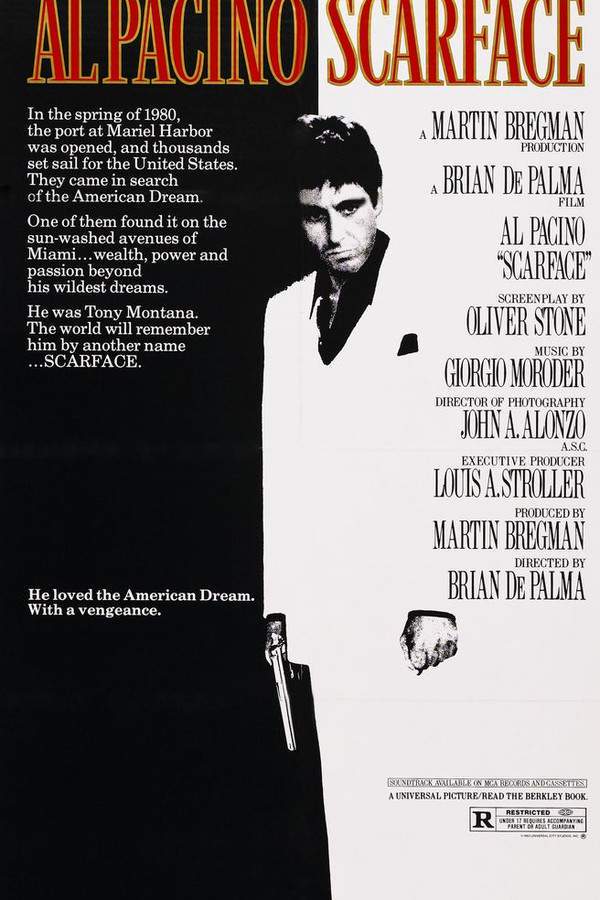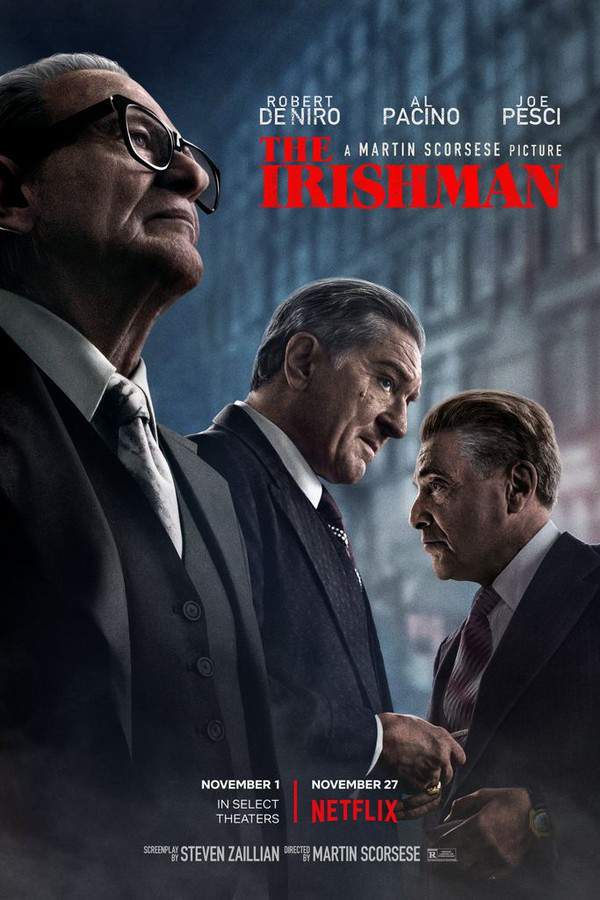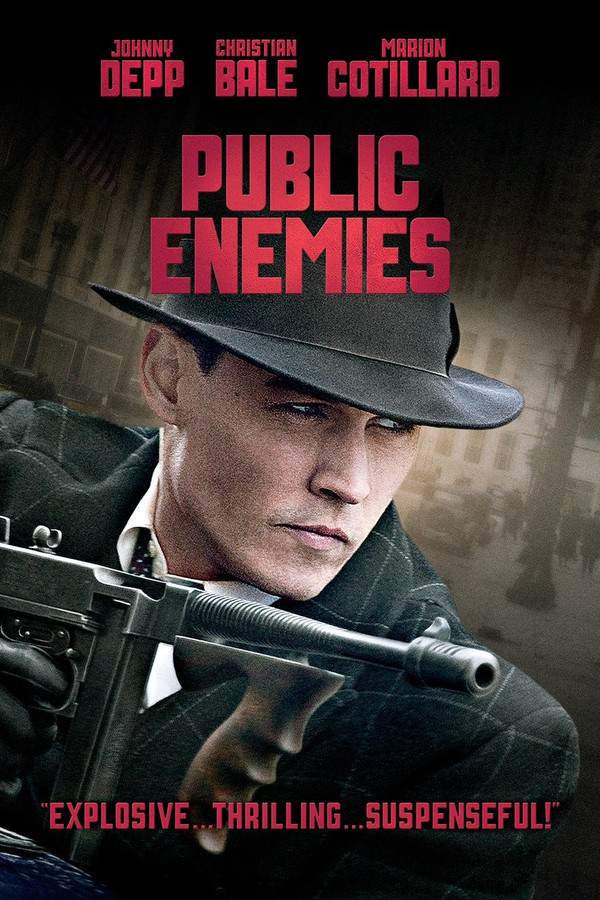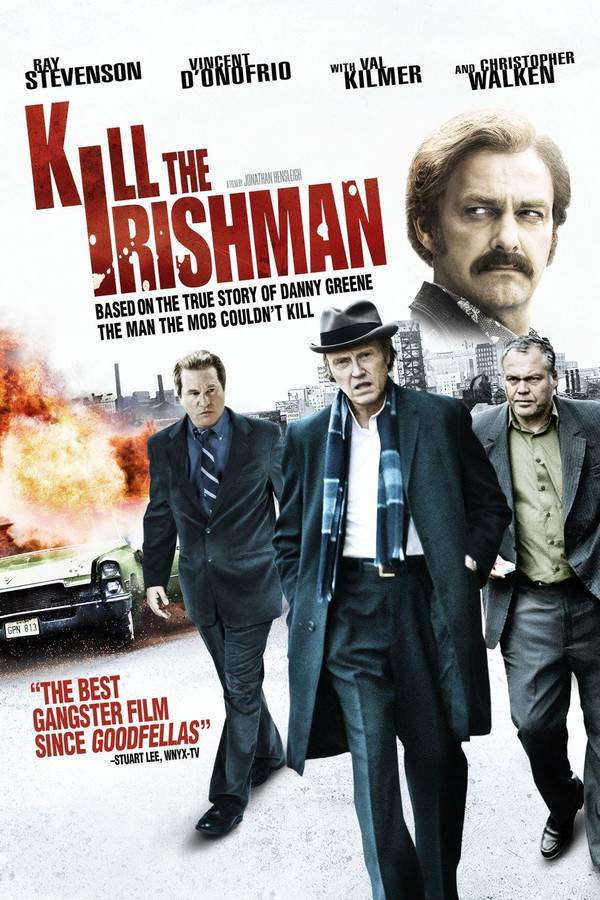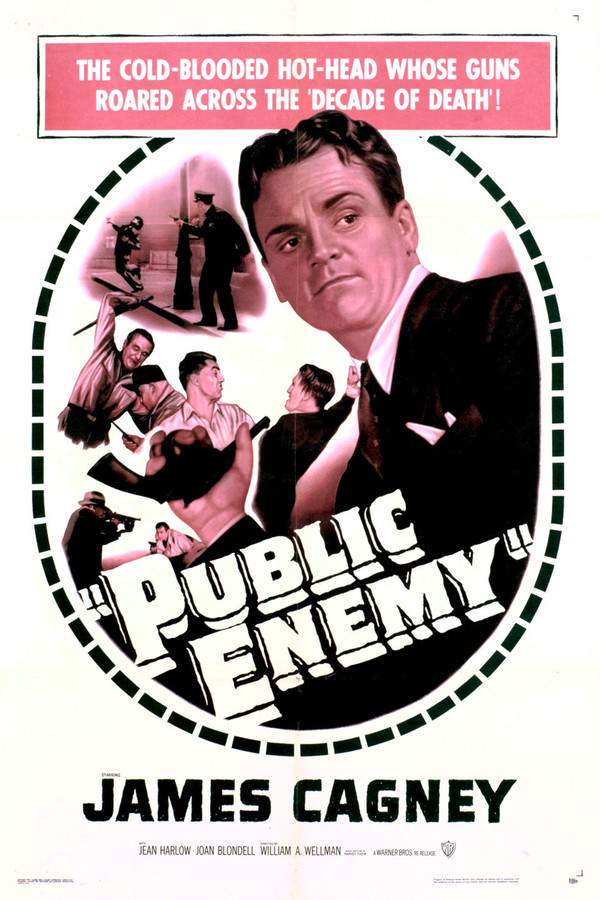
The Untouchables 1987
Directed by

Brian De Palma
Made by
Paramount Pictures
Test your knowledge of The Untouchables with our quiz!
The Untouchables Plot Summary
Read the complete plot summary and ending explained for The Untouchables (1987). From turning points to emotional moments, uncover what really happened and why it matters.
As the Roaring Twenties transitioned into the turbulent Thirties, the notorious Al Capone maintained his unyielding grip on Chicago. The gangster’s vast illegal liquor operation resembled a colossus, and it seemed no one could topple his reign. Enter Eliot Ness, a dedicated Bureau of Prohibition agent on a mission to dismantle Capone’s formidable empire. Early on, however, Ness found his efforts stonewalled by corrupt police officers, fully in the gangster’s pocket. In this dire situation, he encountered James Malone, a seasoned Irish-American cop who shared Ness’ disdain for the pervasive corruption and pledged to support him in his daunting task.
Together, they devised a strategy to enlist an idealistic officer untouched by the crime lord’s influences. Their quest led them to George Stone, whose real name was Giuseppe Petri—an Italian-American rookie renowned for his sharpshooting skills and steadfast principles. With the assistance of Oscar Wallace, an accountant dispatched from Washington, D.C., Ness and his team executed a successful raid on a warehouse tied to Capone’s operations. This audacious move garnered them the nickname “The Untouchables,” capturing the public’s imagination and stirring media excitement.
But Capone was not a man to tolerate insubordination. In a brutal retaliation, he sent a grim reminder of his power by murdering the warehouse manager with a baseball bat, signaling to his followers the depths of his ruthlessness. As Ness delved deeper into the investigation, he became increasingly convinced that Capone’s empire was vulnerable, particularly due to his failure to file an income tax return for several years. Wallace astutely recommended focusing on building a case for tax evasion; this angle could exploit a significant vulnerability in Capone’s defenses.
Nevertheless, Ness was compelled to navigate a labyrinth of bribery and corruption, as crooked officials persistently attempted to deter him with lucrative offers to halt his pursuit of justice. The tension escalated when Frank Nitti, Capone’s enforcer, issued a chilling death threat against Ness’s family. Understanding the peril, Ness relocated them to safety, yet tragedy struck as Nitti made good on his threat, assassinating Oscar Wallace and George Stone in cold blood right at the police station. The horrors of this violence sent shockwaves through Ness’ team, underscoring Capone’s relentless drive to silence opposition.
In a dramatic turn, Ness confronted Capone himself at the Lexington Hotel, but was urged by Malone to redirect his focus towards persuading the district attorney to maintain charges against the crime lord. The urgency of the situation had never been more acute, necessitating decisive action to ensure Capone faced justice. In the face of escalating tensions, Malone’s confrontation with Dorsett unveiled a deep-seated betrayal meant to safeguard Capone’s interests. As Malone’s tenacity led him to unearth Payne’s location, he engaged in a desperate struggle against one of Capone’s henchmen, leading to a near-fatal showdown.
Just when it seemed like despair would conquer, Ness and Stone arrived to save Malone, who was barely clinging to life. In a gripping act of camaraderie, Malone relayed essential information regarding Payne’s imminent escape plan. Meanwhile, Ness’s keen eyes caught sight of a struggling mother in the bustling lobby, laden with two suitcases and an infant. Seizing the moment, Ness lent her aid and ensured her escape as chaos erupted around them, culminating in a fierce gunfight that left Ness and Stone victorious, capturing Payne and eliminating his accomplices.
As the courtroom drama unfolded during Capone’s trial, Ness was struck by the unsettling demeanor of the defendant and Nitti’s audacious display of a firearm inside the court. A thorough investigation unveiled a note from Chicago’s Mayor William Hale Thompson, which covertly authorized Nitti’s possession of his weapon. However, Ness’s instincts screamed that this was merely the tip of the iceberg, and a clue found on a matchbook tied back to Malone would confirm his darkest suspicions—Nitti had orchestrated Malone’s death.
When chaos erupted as Nitti attempted to escape, Ness intercepted him on the rooftop, delivering a furious blow that sent Nitti plummeting to his demise—a tragic act of retribution for the innocent victims of Capone’s reign. The tide began to turn as Stone presented Ness with a crucial list from Nitti’s coat, disclosing the jurors in Capone’s trial were covertly compromised by the crime boss. With measured determination, Ness seized the opportunity to convince the judge to replace Capone’s jury with one from an unrelated divorce case, presenting a scenario where he would unveil sufficient evidence of Capone’s corruption.
This bold tactic caught Capone off guard, leading his attorney to reluctantly enter a guilty plea, sparking a wave of outrage from the gangster. The swift aftermath was severe: Capone was convicted of tax evasion, receiving an 11-year prison sentence. On the day of Capone’s incarceration, Ness brought his tenure as a lawman to a close, entrusting Malone’s cherished St. Jude medallion and callbox key to Stone as a final farewell.
As Eliot Ness departed the police station for the very last time, a journalist posed a pointed question about his future amidst the impending repeal of Prohibition. With characteristic wit, Ness quipped, > “I think I’ll have a drink,” leaving behind a legacy forged in determination and justice.
The Untouchables Timeline
Follow the complete movie timeline of The Untouchables (1987) with every major event in chronological order. Great for understanding complex plots and story progression.
The Roaring Twenties
As the 1920s drew to a close, the United States was marked by economic prosperity yet faced growing challenges that would lead into the tumultuous 1930s. Chicago became a hotbed for organized crime, with Al Capone reigning as a powerful figure in the illegal liquor trade, evoking fear and respect from both citizens and rival gangs.
Introduction of Eliot Ness
Eliot Ness, a dedicated Bureau of Prohibition agent, emerged with a firm resolve to dismantle Capone’s vast empire of illegal liquor. Despite the challenges of corruption surrounding him, Ness remained undeterred and committed to his mission to bring justice to Chicago.
Forming an Alliance
Finding himself obstructed by corrupt police officers, Ness increased his frustration until he encountered James Malone, a seasoned Irish-American cop. Recognizing their shared goal of confronting corruption, they struck an alliance to pursue Capone's formidable empire together.
Recruiting George Stone
Ness and Malone sought a new recruit to aid in their battle against Capone. They discovered George Stone, an Italian-American rookie, known for his exceptional sharpshooting skills and incorruptible morals, making him the ideal candidate for their team.
The Untouchables Begin
With the support of accountant Oscar Wallace from Washington, D.C., Ness’ team achieved a significant victory by conducting a successful raid on one of Capone's warehouses. This daring act earned them the nickname 'The Untouchables', which resonated with the public and drew attention from the media.
Capone's Retribution
In response to the threat posed by Ness and his team, Capone showcased his ruthless nature by murdering the warehouse manager as a warning. This brutal act underscored Capone’s harsh methods of maintaining control and instilled fear in those opposing him.
Ness Discovers Vulnerability
While investigating further, Ness became aware of Capone's significant vulnerability: his failure to file income tax returns over several years. This discovery opened a new avenue for Ness and his team, prompting them to focus on building a case for tax evasion.
Threats Against Family
As Ness closed in on Capone’s empire, tensions escalated, leading to Frank Nitti, Capone’s enforcer, issuing a chilling death threat against Ness's family. With their safety in jeopardy, Ness made the difficult decision to relocate them away from the rampant violence.
Tragedy Strikes
Despite Ness's efforts to protect his loved ones, the violence escalated as Oscar Wallace and George Stone were tragically murdered at the police station. This devastating loss sent shockwaves through Ness’s team and highlighted the dangers posed by Capone’s criminal organization.
Confrontation at the Lexington Hotel
Ness confronted Capone directly at the Lexington Hotel, but he was advised by Malone to prioritize his efforts on persuading the district attorney to keep charges against Capone alive. This crucial decision aimed to ensure that justice would finally be served against the notorious gangster.
Malone's Struggle
Malone's persistence led him to uncover the whereabouts of Payne, a key figure in Capone’s operations. In a violent clash with one of Capone's henchmen, Malone nearly lost his life, but was saved by Ness and Stone just in time, underscoring their commitment to one another.
Courtroom Tensions
As the trial against Capone unfolded, Ness was struck by Nitti's provocative presence and the tension it stirred within the courtroom. A subsequent investigation revealed that the Mayor of Chicago had covertly sanctioned Nitti's presence, exposing the deep ties between politics and organized crime.
Nitti's Attempted Escape
In a chaotic turn of events during the trial, Nitti attempted to flee. Ness intercepted him on the rooftop, delivering a fierce blow that resulted in Nitti's fatal fall, marking a bittersweet moment of justice amidst the turmoil.
Capone's Conviction
Ness and his team made a breakthrough when they discovered a list of compromised jurors in Nitti's possession. Utilizing this information, Ness convinced the judge to replace the jury, leading to Capone's unexpected guilty plea and an 11-year prison sentence for tax evasion.
Ness's Farewell
On the day of Capone's incarceration, Ness took a moment to honor Malone by passing on a cherished medallion and callbox key to Stone. As he departed from the police station, a journalist's inquiry about his future prompted Ness to humorously quip, 'I think I’ll have a drink,' signaling the end of a significant chapter in his life.
The Untouchables Characters
Explore all characters from The Untouchables (1987). Get detailed profiles with their roles, arcs, and key relationships explained.
Eliot Ness
Eliot Ness is portrayed as a determined Bureau of Prohibition agent, unyielding in his mission to bring down Al Capone. He embodies integrity and resilience, often facing immense pressure from both side—corrupt officials and dangerous criminals. His character arc illustrates the moral complexities of law enforcement during a time of rampant corruption.
James Malone
James Malone is a seasoned Irish-American cop who stands alongside Ness in the battle against Capone’s empire. He represents the voice of experience, offering critical support and tactical wisdom. Malone’s character exhibits a survivor's instinct, understanding the stakes and willing to take risks to achieve justice.
Frank Nitti
Frank Nitti serves as Capone's ruthless enforcer, embodying the menace of organized crime. His calm demeanor masks a volatile ruthlessness that drives the narrative's tension. Nitti's actions constantly threaten Ness and his team, demonstrating the lethal stakes involved in defiance against Capone.
The Untouchables Settings
Learn where and when The Untouchables (1987) takes place. Explore the film’s settings, era, and how they shape the narrative.
Time period
Roaring Twenties to the Thirties
The Roaring Twenties marked an era of cultural dynamism and economic prosperity in the United States, characterized by the rise of jazz music and flapper culture. However, as the Thirties approached, the country experienced the onset of the Great Depression, leading to increasing social unrest and the emergence of organized crime as entrepreneurs sought to profit from Prohibition. This tumultuous period laid the groundwork for Eliot Ness's efforts to bring down notorious mobsters like Al Capone.
Location
Chicago, Lexington Hotel, Washington, D.C.
Chicago, known for its vibrant history and architecture, serves as the backdrop for the intense battle against organized crime during the Prohibition era. The Lexington Hotel, infamous for its ties to Al Capone, becomes a critical location for the climactic confrontations between law enforcement and gangsters. Washington, D.C. is represented through the involvement of federal agents and their operations to dismantle Capone's empire.
The Untouchables Themes
Discover the main themes in The Untouchables (1987). Analyze the deeper meanings, emotional layers, and social commentary behind the film.
⚖️
Justice
The theme of justice is central to the movie, revolving around Eliot Ness's steadfast commitment to dismantling Al Capone's criminal empire. Despite facing overwhelming odds, Ness and his team embody the struggle against corruption as they navigate a treacherous landscape of bribery and violence. Their relentless pursuit ultimately underscores the importance of integrity and courage in the face of adversity.
💔
Sacrifice
Sacrifice resonates throughout the narrative as characters, notably Malone and Wallace, pay the ultimate price for their dedication to justice. Their deaths serve as poignant reminders of the human cost of battling an unforgiving criminal underworld. This theme highlights the personal sacrifices made by law enforcement agents in their quest to protect the innocent.
🔫
Violence
Violence permeates the story, showcasing the brutal reality of organized crime during Prohibition. Capone's retaliatory actions illustrate the lengths to which gangsters will go to maintain their power, creating a pervasive atmosphere of fear. This theme reflects the dangerous dynamics between law enforcement and criminals, emphasizing the stakes involved in the fight for control.

Coming soon on iOS and Android
The Plot Explained Mobile App
From blockbusters to hidden gems — dive into movie stories anytime, anywhere. Save your favorites, discover plots faster, and never miss a twist again.
Sign up to be the first to know when we launch. Your email stays private — always.
The Untouchables Spoiler-Free Summary
Discover the spoiler-free summary of The Untouchables (1987). Get a concise overview without any spoilers.
In the gritty streets of 1930s Chicago, the echo of jazz mingles with the relentless hum of bootlegged liquor, casting a city both vibrant and foreboding. Prohibition has turned ordinary neighborhoods into shadowed battlegrounds where power is bought, secrets are traded, and every alleyway could hide a whispered deal. The atmosphere teeters between hopeful optimism and simmering danger, setting a stage where law and lawlessness constantly collide under a sky perpetually veiled in smog and ambition.
At the heart of this volatile world stands Eliot Ness, a determined Prohibition agent driven by an unshakable sense of duty. He is joined by James Malone, a seasoned Irish‑American cop whose experience with the city’s corrupt underbelly provides a steady hand, and George Stone, a young sharpshooter whose untested idealism brings fresh vigor to the fold. Rounding out the team is Oscar Wallace, a meticulous accountant whose analytical mind offers a different kind of weapon in a fight that transcends bullets. Together they form a tightly knit coalition, each member bringing a distinct skill set and a shared resolve to confront the entrenched criminal empire that dominates the city.
The tone of the story is a blend of relentless tension and gritty realism, underscored by moments of quiet camaraderie that illuminate the humanity behind the badge. The team moves through a landscape riddled with compromised officials and whispered loyalties, their every step measured against the ever‑present threat of retaliation. Their resolve earns them a moniker that captures the public’s imagination—a testament to both their daring and the hope that even the most impregnable power structures can be challenged.
As the city watches, the stakes rise with each silent promise made in darkened offices and smoky backrooms. The narrative hints at an inevitable clash between steadfast integrity and the sprawling network of influence that protects the era’s most notorious figure, leaving the audience poised on the edge of a story where courage may finally tip the balance.
Can’t find your movie? Request a summary here.
Movies with Similar Twists and Themes
Uncover films that echo the narrative beats, emotional arcs, or dramatic twists of the one you're exploring. These recommendations are handpicked based on story depth, thematic resonance, and spoiler-worthy moments — perfect for fans who crave more of the same intrigue.
Featured on this page

What's After the Movie?
Not sure whether to stay after the credits? Find out!
Explore Our Movie Platform
New Movie Releases (2025)
Famous Movie Actors
Top Film Production Studios
Movie Plot Summaries & Endings
Major Movie Awards & Winners
Best Concert Films & Music Documentaries
Movie Collections and Curated Lists
© 2025 What's After the Movie. All rights reserved.


